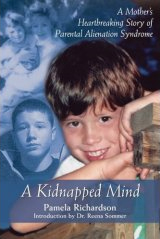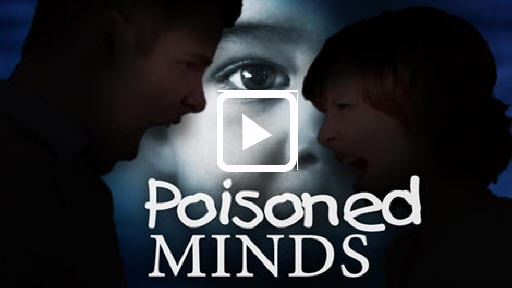![]()
Parenting style can change child behaviour
CTV.ca News Staff, February 21, 2005
Parents who are more punitive tend to have aggressive children. But a new survey suggests that when parenting practices change, a child's behaviour also changes.
The results of the National Longitudinal Survey of Children and Youth (NLSCY) suggests children show higher levels of aggression, are more anxious and less altruistic when parents have a more punitive parenting style.
However, the study also says if parents became less punitive, over time, the child also became less aggressive. The same is true for the reverse.
"That's the big message: When parenting practices change, child behaviour changes," Eleanor Thomas, a senior research analyst from Statistics Canada, told CTV.ca.
A psychologist and mother of two thought the findings were common sense.
"If we're hitting our children ... to get them to do what we want, then it only makes sense to me that they'll take that type of behaviour and use it to get what they want," says Jacqueline Milner-Clerk.
The study, conducted by Social Development Canada and Statistics Canada, followed 4,129 children over an eight-year period.
Researchers surveyed parents in 1994-95 when children were between the ages of two and five. They again question parents and children in 2002-03, when the children were between 10 and 13 years of age.
Over that eight years, if a parent became less punitive, children scored just as low in aggression as children whose parents were never punitive.
"This occurred regardless of the children's level of aggressive behaviour when they were younger," the study suggests.
However, if a parent became more punitive over that time period, children scored just as high on aggression as those whose parenting styles were punitive at both ages.
The survey found similar results with regard to anxiety in children, and pro-social behaviour, defined as actions that benefit another person with no reward for oneself.
"People have been so interested in how parenting affects children in different ways, but it's hard to pin down change," says Thomas.
"When you've got a longitudinal survey like this one, you can look at change."
Thomas said the results of the survey do not prove punitive parenting practices cause aggressive behaviour, anxiety or pro-social behaviour in children.
"But it does confirm research that many people have done that very strongly suggests there a causal role between punitive parenting and aggression."
Low-income
Aside from parenting styles, the study looked at the effect of income on aggression in children.
It found that children from low-income homes tend to have a "slightly higher" probability of aggressive behaviour than other children.
However, "many of them are resilient to this situation and have outcomes that compare with children from other income groups."
It said that children who were resilient, or those who scored lower in aggression in 2002-03, were exposed to significantly lower levels of punitive parenting practices than less resilient children.
"FurtherRead More ..the resilient children experienced parenting practices that were significantly more nurturing, and their parents monitored their activities more closely," the survey said.
Other findings of the report:
- Children from low-income families experienced higher levels of family dysfunction, up to the age of 11
- Low-income was linked with maternal depression in the first and second round of testing
- Dysfunction in the family was linked with anxiety in children aged two to five.
Aggressive behaviour in children was measured by how often the child reacted in aggressive ways, such as getting into fights, or how often by bullied others.
A punitive parenting style was characterized by how often the parent yelled or used physical punishment.
Milner-Clerk has this advice: "I would say not to smack the child when they do something wrong, but try to redirect the child, teach them the proper way to do something."
With a report from CTV's John Vennavally-Rao

TV Show about Parental Alienation
W5 investigates: Children on the frontlines of divorce
November 7, 2009
The world of divorce is scary for any child. But when a divorce becomes especially toxic, children can become the target of an unrelenting crusade by one parent to destroy the child's relationship with the other. Experts call it parental alienation.

A Kidnapped Mind
What does Parental Alienation Syndrome mean? In my case, it meant losing a child. When Dash was 4 1/2 years old his father and I broke up. I dealt with the death of our marriage and moved on but Peter stayed angry, eventually turning it toward his own house, teaching our son, day by day, bit by bit, to reject me. Parental Alienation Syndrome typically means one parent's pathological hatred, the other's passivity and a child used as a weapon of war. When Dash's wonderful raw materials were taken and shaken and melted down, he was recast as a foot soldier in a war against me.
Divorced Parents Move, and Custody Gets Trickier
The New York Times, New York city, U.S.A. August 8, 2004
Not too long ago, Jacqueline Scott Sheid was a pretty typical Upper East Side mother. Divorced and with a young daughter, she had quickly remarried, borne a son, and interrupted her career to stay home with the children while her husband, Xavier Sheid, worked on Wall Street.
Early last year, Mr. Sheid lost his job and saw his only career opportunity in California. But Ms. Sheid's ex-husband, who shares joint legal custody of their daughter, refused to allow the girl to move away. So Ms. Sheid has spent much of the last year using JetBlue to shuttle between her son and husband on the West Coast and her daughter (and ex) on the East.
The New York court system, which she hoped would help her family to resolve the problem, has cost her tens of thousands of dollars in fees for court-appointed experts, she said, and has helped to prolong the process by objecting to her choice of lawyers.

Custody judges rule on vengeance
Courts criticized for recognizing 'parental alienation'
National Post
March 27, 2009
Toronto -- The scope of the courts' reach into family affairs has long been contentious, but a recent trend in Canada's legal system has brought a new controversy that has some onlookers praising judges and others condemning them for accepting what they call "voodoo science."
More than ever before, Canada's judges are recognizing that some children of divorced and warring parents are not simply living an unfortunate predicament, but rather are victims of child abuse and suffering from Parental Alienation Syndrome. Read More ..
![]()
Parenting: Baldwin Speaks Up
NEWSWEEK, U.S.A.
May 7, 2007
Many celebrities would shrink from view after a PR nightmare like Alec Baldwin's leaked voice mail in which he calls his 11-year-old daughter, Ireland, a "rude, thoughtless little pig." But Baldwin wants to use the media scrutiny to give exposure to parental alienation, the controversial "syndrome" caused by one parent's systematically damaging a child's relationship with the other parent.

B.C. judge bars mother from seeing daughter
Court orders one-year ban after 'unfounded' abuse allegations made about teenager's father
THE CANADIAN PRESS
March 10, 2009
VANCOUVER - In a case of extreme parental alienation, a mother has been banned by a B.C. Supreme Court judge from seeing her teenage daughter for more than a year.
Because of the urgency of the matter, Justice Donna Martinson issued the terse, two-page ruling outlining 15 conditions the parents must follow, including that the mother, known only as Ms. A, not see her daughter until at least March 31, 2010.
The decision came after the mother alleged extreme emotional abuse by the father, which she claimed was putting the teenager's safety at risk.
"I am satisfied that Ms. A's allegations are unfounded," Martinson wrote.
"I am further satisfied that she has continued to undermine the relationship between M and her father and has acted in ways that are detrimental to M's psychological healing."
Names have been stripped from the court ruling to protect the girl's identity.
The judge has ordered that both the mother and maternal grandmother have no contact with the girl, which would be enforced by police if necessary.


